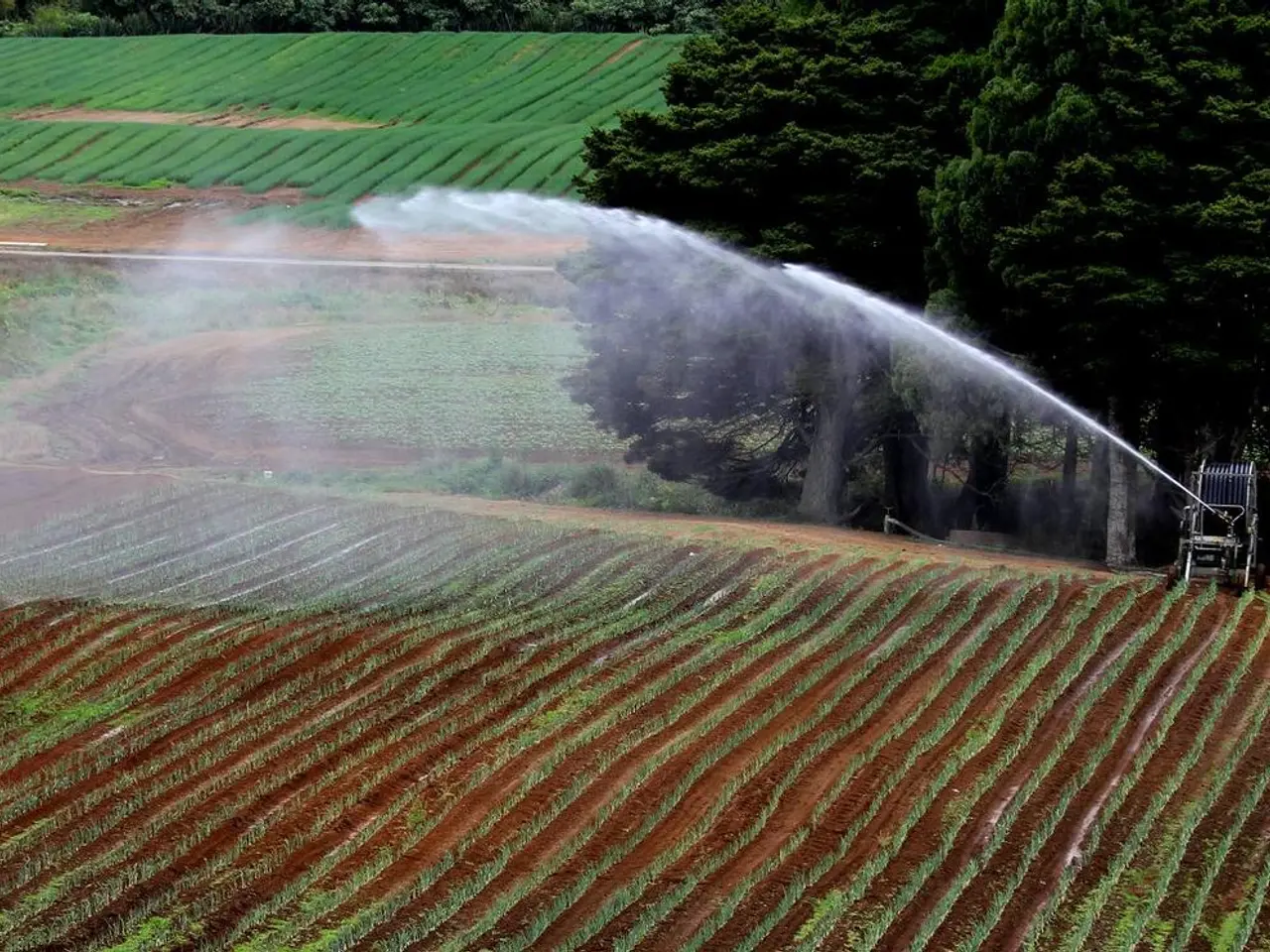International Agri Products from Bihar Showcased at First Global Buyer-Seller Meeting, Expanding Global Presence
In a significant step towards Bihar's economic transformation, the Ministry of Food Processing Industries (MoFPI) hosted Bihar's first International Buyer-Seller Meet (IBSM) at Gyan Bhawan in Patna. The two-day event, attended by over 70 international buyers from 20 countries and over 50 domestic buyers, aimed to showcase Bihar's readiness for global markets and set a standard for future agri-trade collaborations.
The IBSM served as a platform for local businesses to learn about the latest trends, technologies, and best practices in the food processing industry. Participants were introduced to key MoFPI schemes, with Bihar having the highest number of units approved for the PMFME scheme in FY 2024-25. The technical sessions, led by experts from MoFPI, APEDA, NIFTEM-Kundli, ICRIER, the Indian Institute of Packaging, EXIM Bank, Start-Up India, and other entities, focused on providing knowledge and resources to help businesses navigate the complexities of exporting their products globally.
One of the key export opportunities highlighted during the IBSM was Makhana (fox nuts). Bihar is a major producer and exporter of makhana, contributing over 25% of India's exports of about 2,000 tonnes annually. The product is gaining popularity in health-conscious markets like the US due to its superfood status, clean-label, and plant-based appeal. However, recent tariff increases by the US (from 3.5% to 25%) could impact competitiveness, requiring exporters to enhance FDA compliance, branding, and product innovation to retain market share.
The Bihar government recently introduced a ₹50,000 per hectare subsidy to promote the cultivation of select fruits such as guava (amrud), Indian gooseberry (amla), apple ber, and lemon (nimbu). These crops offer climate resilience, steady year-round market demand, and higher returns, making them attractive both for domestic income growth and export potential.
Bihar's wheat production has significantly improved using adaptive agriculture technologies and high-yield varieties, making it a crucial contributor to India's grain stockpile. While wheat is mainly a staple crop supporting local livelihood, advances in quality and climate adaptation could open niche export opportunities, especially as part of India's overall export portfolio growth.
The IBSM also attracted companies from Singapore showing interest in commercial deals for litchis and mangoes from Bihar. West African buyers expressed strong interest in Sattu, a traditional high-protein food from Bihar. Over 500 structured B2B meetings were conducted, creating fresh export opportunities for Bihar's signature products like GI-tagged makhana, Shahi litchi, Zardalu mango, and Katarni rice.
The event underscored the effectiveness of coordinated efforts between the Centre and State governments in promoting agri-trade collaborations. The technical sessions empowered local businesses to improve product quality, align with international standards, and expand into new markets. The signing of a Memorandum of Understanding (MoU) between APEDA, the Government of Bihar, and UAE-based Lulu Group, aiming to extend the shelf life and export scope of Bihar's litchis, is a testament to this collaboration.
The IBSM marked a significant stride in Bihar's agricultural sector, opening up new avenues for export growth. Exporters need to focus on compliance, value addition, branding, and tapping new international markets to maximize these opportunities. With the projected growth in farm exports and the government's continued support, Bihar's agricultural products are poised to make a significant impact in the global market.
[1] India's Wheat Production: Trends and Challenges
[2] Bihar Government Subsidies for Select Fruit Cultivation
[3] Impact of Tariff Increases on Makhana Exports
[4] India's Farm Exports Surpass $51.9 Billion in 2024-25
[5] Projected Growth in India's Farm Exports
In the realm of Bihar's agricultural sector, the International Buyer-Seller Meet (IBSM) provided a platform for local businesses to learn about innovations in the food-and-drink industry, including techniques for enhancing FDA compliance and product innovation to remain competitive in global markets (1). The event highlighted the potential of Makhana (fox nuts) as a key export product, given its growing popularity in health-conscious markets like the US (3). The Bihar government's incentives, such as subsidies for the cultivation of select fruits (2), aim to bolster the production of these crops and increase export potential. With the surge in farm exports, Bihar's agricultural products, including GI-tagged makhana and other signature products like Shahi litchi, Zardalu mango, and Katarni rice, are primed to make a significant impact in the global-cuisines market, contributing to India's farm exports surpassing $51.9 billion in 2024-25 (4, 5). Additionally, home-and-garden businesses may find opportunities in the growth of fruit cultivation in Bihar, as crops like guava, Indian gooseberry, apple ber, and lemon offer climate resilience and steady market demand (2).





